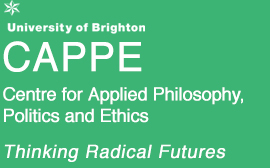CAPPE Critical Theory Workshop
Gary Hussey, Doctoral Candidate, National University of Ireland, Galway.
Violence, space, and order: An excavation of the political logics of territoriality in peasant resistance in early nineteenth-century Ireland.
Wednesday 25th October, 10:30-1:00; Room tbc.
The workshop will focus on a draft paper which will be circulated in advance. It is expected that participants will have read the paper before the workshop in order to enable a good level of discussion.
Abstract: The paper interrogates the imbrications of violence, space, and order. It does so, both theoretically and empirically, by focusing on an early-nineteenth-century Irish agrarian secret society, the Threshers. This group of insurgents, responding to the profound dislocation and dispossession brought by the vicissitudes of the market, sought to impose their vision of order across the nocturnal rural-scape. In particular, the Threshers’ practices of territoriality- or space claiming- are examined. These practices are understood as political logics that disrupted the reproduction of the dominant order within the local space, and attempted to inaugurate different codifications of it. The Threshers’ repertoire of resistance entailed the inscription of an antagonistic frontier- the spatialisation of the political- and the articulation of communal subject who had the right to speak sovereignly over the local space. These practices of rupture and resistance are excavated through an engagement with an empirical corpus, The State of Country Papers, held at the National Archives of Ireland, Dublin. In doing so, this article, drawing on the work of Ernesto Laclau, amongst others, posits space as politically instituted and antagonistically constituted. Practices of space-claiming resistance then, reveal, the fraught, contested, and contingent orderings of space. All of which widens a theoretical aperture, aiding us in rendering visible not only the excluded possibilities and lost imaginaries that are over-written through the spatialisation of order, but allows us to think through the ways in which space is both the site of closure and possibility, dominations and resistances.
